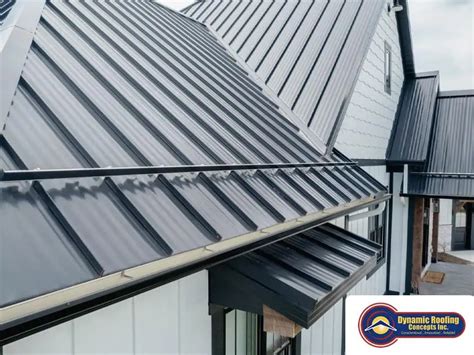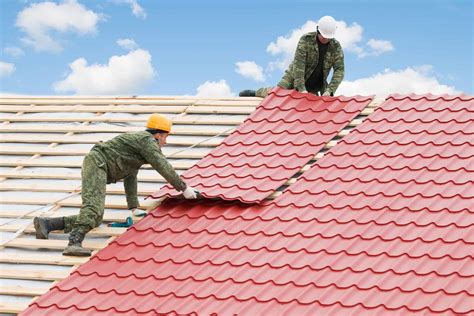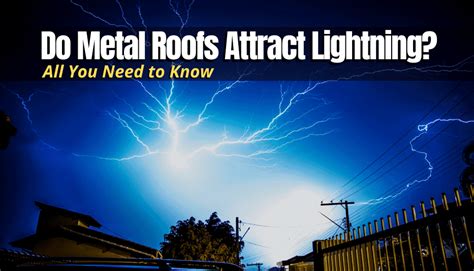do metal roofs make the house hotter Metal roofs reflect the hot sun, so you don’t need to spend as much on your home’s cooling costs. You’ll also spend less on heating bills because most roofing companies insulate under metal roofs, keeping your home . Forsyth Tech offers welding technology diplomas, certificates, and associates degrees that can be completed in as little as six months. Find your new career here.
0 · is metal roofing worth it
1 · is metal roofing expensive
2 · does metal roofing attract lightning
3 · do metal roofs cause lightning
4 · are metal roofs sturdy
5 · are metal roofs noisy
6 · are metal roofs better than metal
7 · are metal roofing good quality
Fabricator Welder Resume Examples - Craft a standout resume with expert tips and templates. Excel in metalwork as a fabricator welder!
Many people think that metal roofs will make their homes hotter. That’s a myth, and it's one reason why more homeowners are opting for metal roofs . Think of it this way: when it’s really hot outside and you touch a . Metal roofs reflect the hot sun, so you don’t need to spend as much on your home’s cooling costs. You’ll also spend less on heating bills because most roofing companies insulate under metal roofs, keeping your home . Metal roofs do not make houses hotter; in fact, they can keep homes cooler due to their reflective properties. Insulation and ventilation play crucial roles** in regulating the . In conclusion, the question “Does a metal roof make a house hotter?” can be answered with a clear no. Metal roofs, with their reflective and emissive properties, are .
Metal roofs do get hotter than shingles on the surface. But a metal roof will do a better job of reflecting the heat than a shingled roof. Plus, metal roofs are a lighter material than shingles or tiles.So, do metal roofs make your house hotter? The short answer is not necessarily. While metal is a good conductor of heat, modern roofing technologies like reflective coatings, proper insulation, . While metal conducts heat better than stone or clay, reflective surfaces allow metal roofing to come out on top as the most energy-efficient option for hotter climates, by reducing the need for indoor cooling due to the .Overall, metal roofs do not make your home hotter. There are two main types of metal roofing ventilation: Ridge vents and gable vents. Adequate roof ventilation places a large part in how your roof and your home retain and get rid of heat. .
The truth is that metal roofing doesn’t increase the internal temperature of a home and can even help regulate a home’s temperature by making it cooler in the summer months. . Many people think that metal roofs will make their homes hotter. That’s a myth, and it's one reason why more homeowners are opting for metal roofs . Think of it this way: when it’s really hot outside and you touch a doorknob, for example, the doorknob will probably be pretty warm—maybe a lot warmer than its surroundings! Metal roofs reflect the hot sun, so you don’t need to spend as much on your home’s cooling costs. You’ll also spend less on heating bills because most roofing companies insulate under metal roofs, keeping your home warmer in the winter.
Metal roofs do not make houses hotter; in fact, they can keep homes cooler due to their reflective properties. Insulation and ventilation play crucial roles** in regulating the temperature of your home, regardless of the roofing material. Metal roofs do not make a house hotter than other types of roof materials. Because metal roofs have a low thermal mass, they reflect light and heat rather than absorb it, like asphalt shingles. In conclusion, the question “Does a metal roof make a house hotter?” can be answered with a clear no. Metal roofs, with their reflective and emissive properties, are designed to keep homes cooler by reflecting solar energy and emitting absorbed heat. Factors such as roof color, insulation, and ventilation play crucial roles in maintaining .
Metal roofs do get hotter than shingles on the surface. But a metal roof will do a better job of reflecting the heat than a shingled roof. Plus, metal roofs are a lighter material than shingles or tiles.So, do metal roofs make your house hotter? The short answer is not necessarily. While metal is a good conductor of heat, modern roofing technologies like reflective coatings, proper insulation, and ventilation systems help mitigate any metal roofs heat absorption. While metal conducts heat better than stone or clay, reflective surfaces allow metal roofing to come out on top as the most energy-efficient option for hotter climates, by reducing the need for indoor cooling due to the ability to keep interiors from heating up.Overall, metal roofs do not make your home hotter. There are two main types of metal roofing ventilation: Ridge vents and gable vents. Adequate roof ventilation places a large part in how your roof and your home retain and get rid of heat. If the roof is poorly constructed, any roofing material will cause your home to be hotter.

is metal roofing worth it
The truth is that metal roofing doesn’t increase the internal temperature of a home and can even help regulate a home’s temperature by making it cooler in the summer months. No roofing system will create a cool home in the summer, but most roofs help to keep out heat that comes from direct sunlight. Many people think that metal roofs will make their homes hotter. That’s a myth, and it's one reason why more homeowners are opting for metal roofs . Think of it this way: when it’s really hot outside and you touch a doorknob, for example, the doorknob will probably be pretty warm—maybe a lot warmer than its surroundings! Metal roofs reflect the hot sun, so you don’t need to spend as much on your home’s cooling costs. You’ll also spend less on heating bills because most roofing companies insulate under metal roofs, keeping your home warmer in the winter. Metal roofs do not make houses hotter; in fact, they can keep homes cooler due to their reflective properties. Insulation and ventilation play crucial roles** in regulating the temperature of your home, regardless of the roofing material.
Metal roofs do not make a house hotter than other types of roof materials. Because metal roofs have a low thermal mass, they reflect light and heat rather than absorb it, like asphalt shingles.
In conclusion, the question “Does a metal roof make a house hotter?” can be answered with a clear no. Metal roofs, with their reflective and emissive properties, are designed to keep homes cooler by reflecting solar energy and emitting absorbed heat. Factors such as roof color, insulation, and ventilation play crucial roles in maintaining .
Metal roofs do get hotter than shingles on the surface. But a metal roof will do a better job of reflecting the heat than a shingled roof. Plus, metal roofs are a lighter material than shingles or tiles.So, do metal roofs make your house hotter? The short answer is not necessarily. While metal is a good conductor of heat, modern roofing technologies like reflective coatings, proper insulation, and ventilation systems help mitigate any metal roofs heat absorption.
While metal conducts heat better than stone or clay, reflective surfaces allow metal roofing to come out on top as the most energy-efficient option for hotter climates, by reducing the need for indoor cooling due to the ability to keep interiors from heating up.Overall, metal roofs do not make your home hotter. There are two main types of metal roofing ventilation: Ridge vents and gable vents. Adequate roof ventilation places a large part in how your roof and your home retain and get rid of heat. If the roof is poorly constructed, any roofing material will cause your home to be hotter.


external light junction box

is metal roofing expensive
Leonhardt offers a full range of tubing fabrication capabilities, as well as services including sub-assemblies, welding and brazing, metal finishing, metal stampings, prototyping, and supply chain management.
do metal roofs make the house hotter|do metal roofs cause lightning